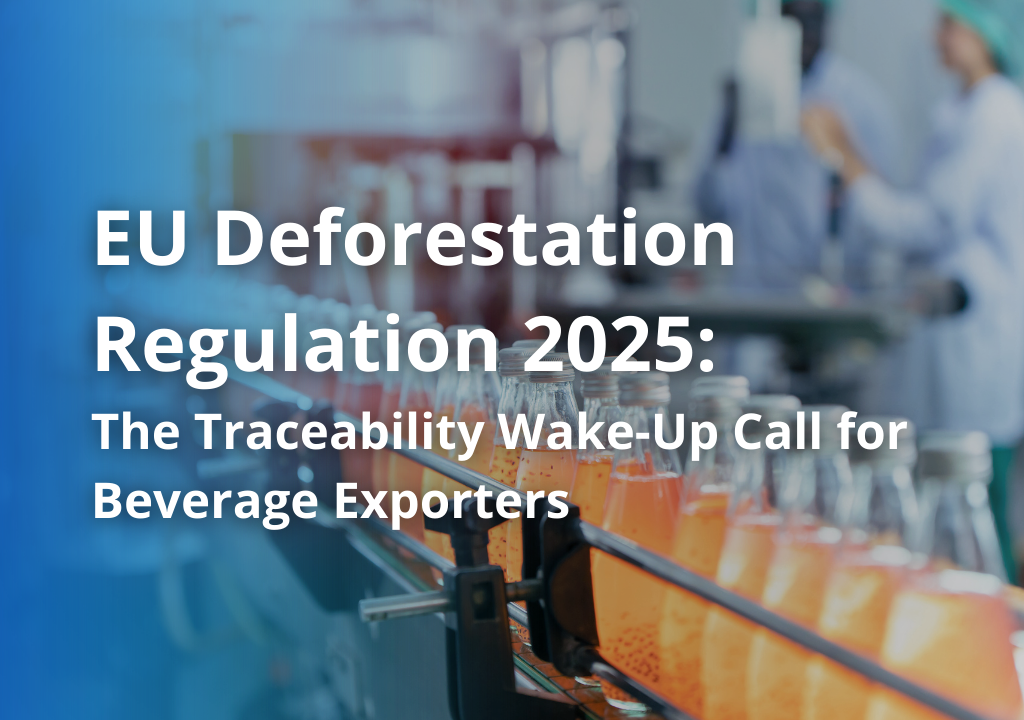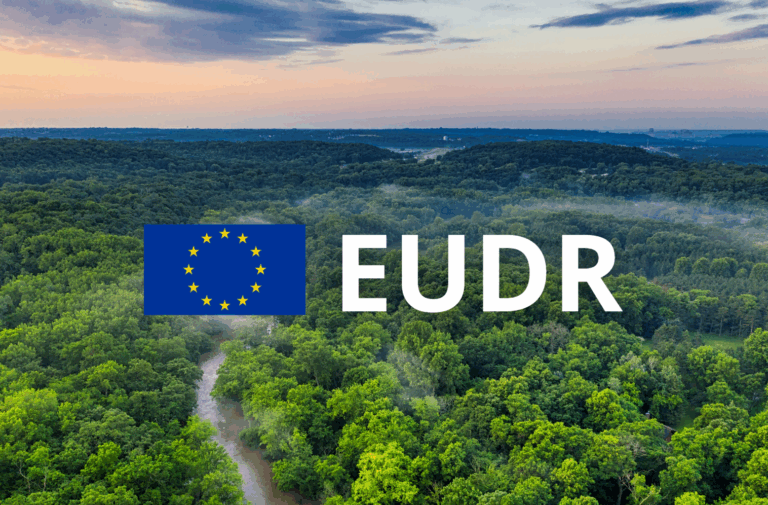EU Deforestation Regulation 2025: The Traceability Wake-Up Call for Beverage Exporters

What Is the EU Deforestation Regulation (EUDR)?
In 2025, the EU Deforestation Regulation (EUDR) came into force, banning imports of products linked to deforestation. Exporters of cocoa, coffee, palm oil, soy, rubber, and wood must now provide verifiable traceability data, including geolocation of production plots.
This is not limited to raw commodities-processed products, beverages, and derivatives are also covered if they contain regulated ingredients.

Why Beverage Exporters Should Pay Attention
Although initial focus is on cocoa and coffee, the regulation sets a precedent for all agricultural-based beverages, such as:
- Cocoa-based drinks (chocolate beverages, malted drinks)
- Coffee drinks and RTD coffee
- Juices or functional beverages using soy protein, palm-derived stabilizers, or rubber in packaging
Context: Reuters (July 2025) reported that small Ivorian cocoa exporters fear bankruptcy because they cannot afford compliance with EU Deforestation Regulation traceability requirements. This highlights the scale of disruption for all exporters dependent on EU market access.
Traceability Requirements Exporters Must Meet
Under the EU Deforestation Regulation, exporters must submit:
- Geolocation Data - GPS coordinates of farms supplying raw materials.
- Due Diligence Statements - Proof that products are “deforestation-free.”
- Digital Recordkeeping - Harmonized data for EU customs checks.
- Sustainability Claims Verification - Cross-check with satellite data and risk assessment tools.
Failure to comply may lead to import bans, fines, or exclusion from EU supply chains.
How This Affects Beverage Supply Chains
- Juice Exporters: Must verify fruit origin if grown in sensitive regions.
- Functional Beverages: Ingredients like soy protein or cocoa extracts require traceability.
- OEM/ODM Brands: Private-label drinks shipped to the EU must provide documentation at the batch level.
Strategic Actions for Exporters in 2025
- Invest in Traceability Systems: Partner with GS1, blockchain, or QR solutions.
- Work with Certified Suppliers: Choose farms audited for sustainability.
- Align with EU Importers: Collaborate on data-sharing platforms.
- Market Differentiation: Promote “deforestation-free” labels to gain consumer trust.
Conclusion
The EU deforestation regulation is more than a sustainability law-it is a market access barrier. For beverage exporters, compliance with traceability requirements is the only way to maintain access to the lucrative EU market.
Those who adapt early with transparent sourcing, QR-based tracking, and sustainability claims will not only survive but also thrive in a compliance-driven export landscape.
Nam Viet Group is committed to delivering export-ready beverages that meet evolving traceability and sustainability standards. Follow us for timely updates on global compliance trends and explore our portfolio of deforestation-free, traceable beverages.
